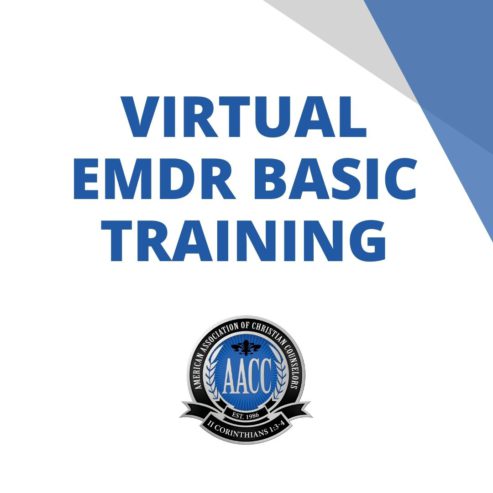Can Christian Clients Benefit from EMDR Therapy?
Can Christian Clients Benefit from EMDR Therapy?
Categories: AACC BLOG

Eye Movement Desensitization and Reprocessing (EMDR) is a psychotherapy technique that is increasingly being used in counseling and therapy. EMDR is especially effective in treating trauma and can be a valuable tool for Christians who are seeking counseling.
Trauma can profoundly impact a person’s mental and emotional health. It can lead to anxiety, depression, and other mental health problems. Trauma can also affect a person’s relationship with God, making it difficult for them to trust and connect with Him. EMDR is a powerful tool for treating trauma and can help Christians overcome the emotional and spiritual barriers that prevent them from experiencing a deeper connection with God.
EMDR works by stimulating the brain’s natural healing process. It involves recalling traumatic memories while focusing on a specific external stimulus, such as eye movements, sounds, or taps. The therapist guides the client through this process, helping them to process the traumatic memories and emotions that are associated with them.
EMDR can be especially beneficial for Christians because it can help them to process traumatic experiences in a way that aligns with their faith. Many Christians can struggle with the idea of surrendering their pain and trauma to God. They may feel guilty or ashamed for being unable to trust God and move on from their trauma. EMDR can help Christians to process their trauma in a way that acknowledges their pain and validates their emotions while also allowing them to surrender their pain to God.
EMDR can also be beneficial for Christians who have experienced spiritual trauma. Spiritual trauma can occur when a person has experienced abuse or mistreatment within a religious context. This can lead to feelings of shame, guilt, and confusion about one’s relationship with God. EMDR can help Christians to process their spiritual trauma in a way that allows them to separate abusive or harmful experiences from their faith. This can help them restore their relationship with God and heal their spiritual wounds.
In addition to its effectiveness in treating trauma, EMDR can also be used to address other common mental health issues among Christians. For example, many Christians struggle with anxiety, depression, and other mood disorders. EMDR can be used to help them process the underlying emotional and psychological causes of these issues, leading to improved mental health and a greater sense of peace and well-being.
Another benefit of EMDR is that it can be a more efficient and effective form of therapy compared to other traditional talk therapies. Many people find that they are able to achieve significant healing and progress in a shorter amount of time with EMDR compared to traditional therapy. This can be especially beneficial for Christians who may have limited time or resources to devote to therapy.
Despite its many benefits, EMDR is not a one-size-fits-all solution. It is important for Christians to seek out a qualified and experienced EMDR therapist who is sensitive to their faith and beliefs. Clients must be willing to engage in the hard work of therapy, which may involve revisiting painful memories and emotions.
EMDR can be a powerful tool for Christians who are seeking counseling and therapy. It is especially effective in treating trauma and can help Christians to overcome emotional and spiritual barriers that prevent them from experiencing a deeper connection with God. EMDR can also be used to address other mental health issues that are common among Christians, such as anxiety and depression.
However, it is important to seek out a qualified and experienced EMDR therapist who is sensitive to one’s faith and beliefs. With the right therapist and a willingness to engage in the hard work of therapy, EMDR can be a valuable tool for Christians seeking healing and wholeness.

The AACC is hosting an EMDRIA approved Virtual EMDR Basic Training on June 2-4 and August 5-7, 2023. To learn more about implementing EMDR in your therapeutic practice, please visit: https://www.aacc.net/virtual-emdr-training/.
